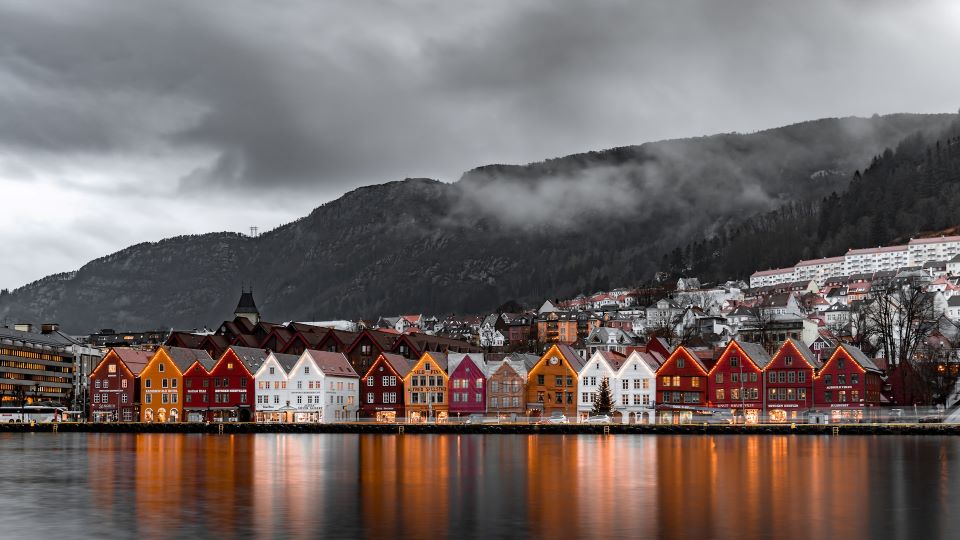Essential Guidelines: What You Should Know Before Visiting Norway

Are you fascinated by the lure of the Northern Lights, the rugged beauty of fjords, or the charming allure of bustling Norwegian cities? Whether you're an adventurous spirit or a culture enthusiast, Norway promises a treasure trove of experiences. However, there are pivotal points you should understand before visiting this Scandinavian gem. This guide will delve into things to know about Norway.
Norway's Restrictions
If your idea of tourism involves rolling dice or shuffling cards, you might find Norway somewhat surprising. Unlike many of its European counterparts, Norway doesn't host conventional casinos. The country maintains a stringent stance on gambling, rooted in historical, cultural, and legislative contexts that aim to protect its citizens from potential risks.
Online Gambling
The digital age has brought about new challenges for Norway's gambling regulations. Norwegian casino laws don't explicitly prohibit citizens from using international online gambling platforms. However, the government discourages such activities by enforcing strict controls on banking transactions related to online gambling. This means depositing or withdrawing money from these sites can be challenging.
Moreover, there's a way around traditional gambling restrictions. Reliable offshore online casinos represent an alternative avenue for gamblers seeking fair play with secure licenses. These platforms provide various casino games that one can enjoy without worrying about breaking local regulations. For easy navigation, some sites provide a list of some of the top offshore online casinos. This site makes finding a trustworthy and exciting casino hassle-free, turning your gambling adventure into an enjoyable experience without any legality concerns.
Legal Landscape
Delving into the legal intricacies, Norway has two major laws about going to casino. The first, the Totalizator Act of 1927, relates to horse racing. The second, the 1992 Gaming Scheme Act, covers other types of gambling. Each of these Norway casino laws and the Lottery Act of 1995 sets the rules for how, when, and where people can gamble.
A unique characteristic of Norway's gambling landscape is the monopoly system. Only two state-owned entities – Norsk Tipping and Norsk Rikstoto – can legally organize gambling activities. Norsk Tipping oversees lottery, sports, and instant games, while Norsk Rikstoto regulates betting on horse races. This arrangement aims to channel the profits from these activities into supporting valuable social and cultural initiatives.
Interestingly, Norway doesn't operate in an entirely prohibitive environment. Private games among friends and low-stake games for fundraising purposes are allowed. This approach represents a balanced fusion of community protection and flexibility.
Alternative Entertainment and Activities
Despite its stringent approach to responsible gambling, Norway certainly doesn't lack entertainment and activities. The country's diverse landscape and rich culture provide countless opportunities for memorable experiences.
Outdoor enthusiasts can take advantage of Norway's extraordinary natural wonders. Take a ferry through the towering fjords, hike up a picturesque mountain trail, or visit in winter for world-class skiing opportunities. For the truly adventurous, dog sledding in the Arctic Circle or whale watching off the northern coasts are unforgettable experiences.

For those seeking cultural immersion, explore vibrant cities, which is the best way to see Norway. Oslo, the capital, offers a blend of modern architecture, world-renowned museums like the Munch Museum or the Viking Ship Museum, and gourmet dining experiences. Bergen, another historical city, is famous for its UNESCO World Heritage site, Bryggen, an old wharf with colorful wooden houses.
Responsible Travel Tips
Consider these practical and responsible Norway travel tips to enhance your experience while preserving its natural and cultural treasures.
Firstly, strive to leave a minimal environmental footprint. Norway is proud of its stunning landscapes, and the principle of "leave no trace" is of paramount importance. Opt for eco-friendly travel options like electric ferries, bikes, or public transportation.
Norway is also pioneering sustainable tourism. You can contribute by selecting accommodations committed to sustainable practices or dining in restaurants that use locally-sourced ingredients.
Interaction with local communities enriches any travel to Norway. Politeness and respect are key in Norwegian society. Understanding some essential customs and etiquette will go a long way. For instance:
- Norwegians value punctuality, whether it's for social or business engagements.
- Personal space is highly regarded. Avoid sitting next to someone on public transportation if other seats are available.
- Tipping is not mandatory but is appreciated for good service.
- Norwegians are generally fluent in English, but learning a few phrases in Norwegian will be appreciated.
Finally, remember that traveling to Norway should be about mutual exchange. As much as you learn from Norway, strive to leave a positive impact on the places and people you encounter.
Currency, Transportation, and Safety
Understanding Norway's currency, transportation, and safety norms is crucial for traveling in Norway. The official currency is the Norwegian Krone (NOK). While credit and debit cards are widely accepted, having some cash on hand for smaller businesses or remote areas is wise.
Norway's transportation network is impressive, with options ranging from efficient public transport in urban areas to extensive ferry routes along the fjords. The country also boasts an extensive rail network, offering a scenic and comfortable journey across its landscapes. Renting a car can be a good option for more freedom, especially visiting remote natural attractions.
Safety is a top priority in Norway, consistently ranked among the world's safest. Petty crimes like pickpocketing can occur in tourist hotspots, so maintain standard precautions. In outdoor settings, follow safety guidelines, especially in mountainous or remote areas.
Lastly, it's advisable to have travel insurance covering medical emergencies, as healthcare in Norway, while excellent, can be expensive for non-residents. Following these guidelines can ensure your journey is safe, smooth, and enjoyable.
Leave a Reply